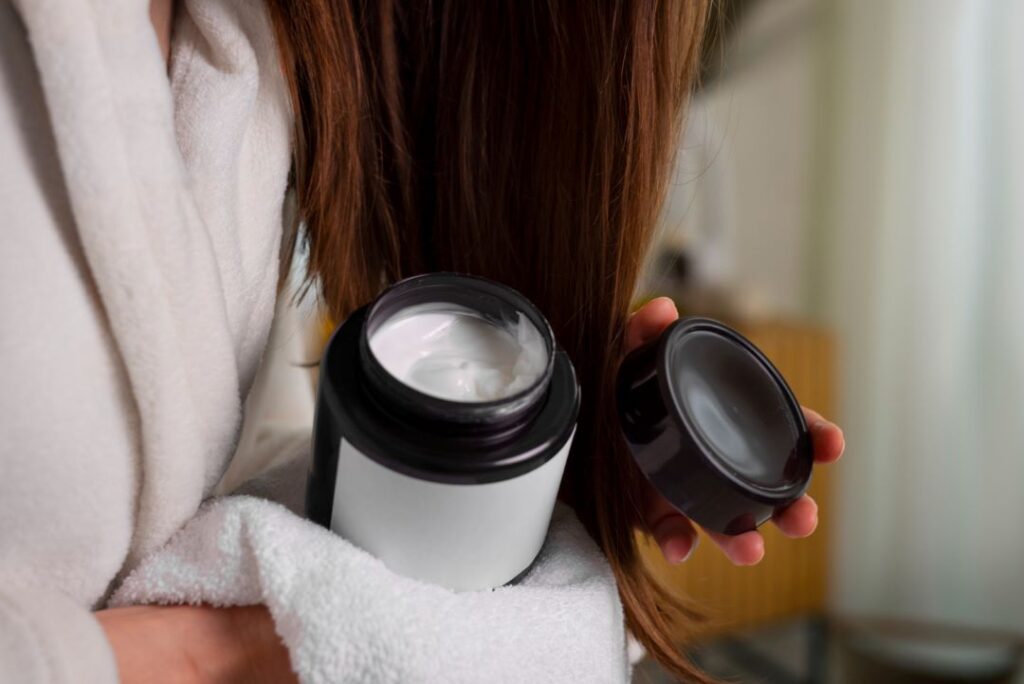Maintaining healthy hair doesn’t always require expensive treatments. DIY hair masks offer a simple, affordable way to nourish your hair with ingredients you likely already have at home. From avocado to honey, these natural remedies can restore shine, moisture, and strength to your locks.
Why Choose DIY Hair Masks?
Making your own hair masks allows you to customize the ingredients to suit your hair’s unique needs. Whether you have dry, oily, or damaged hair, DIY masks offer an effective solution at a fraction of the cost of salon treatments. By using ingredients you trust, you avoid harmful chemicals and tailor your hair care routine for the best results.
Best Ingredients for DIY Hair Masks
- Avocado: Rich in vitamins A, D, and E, avocado hydrates and strengthens hair.
- Honey: A natural humectant, honey locks in moisture and adds shine.
- Egg: Packed with protein, eggs help repair and strengthen damaged hair.
- Coconut Oil: Known for its deep conditioning properties, coconut oil nourishes dry hair.
- Yogurt: The lactic acid in yogurt helps exfoliate the scalp while its protein repairs hair damage.
DIY Hair Mask for Dry Hair
If your hair feels brittle, a mask using coconut oil and honey can deeply moisturize and restore hydration. Simply mix 2 tablespoons of coconut oil with 1 tablespoon of honey, apply it to damp hair, and let it sit for 20-30 minutes before rinsing.
DIY Hair Mask for Oily Hair
For oily hair, use a mask with yogurt and egg whites. This mask helps to balance scalp oil production without stripping your hair of essential moisture. Mix 2 tablespoons of yogurt with one egg white, apply to your scalp, and rinse after 20 minutes.
Benefits of DIY Hair Masks
- Cost-effective: These treatments are much more affordable than salon visits.
- Customizable: You can adjust the ingredients based on your hair type and needs.
- Natural: DIY masks use ingredients free of harsh chemicals, making them safe for most hair types.
How Often Should You Use DIY Hair Masks?
For best results, apply DIY hair masks once or twice a week, depending on your hair type. Those with dry or damaged hair may benefit from more frequent treatments, while individuals with oily hair should limit usage to avoid over-moisturizing.
Heat-Free for Healthier Hair: The Perfect Pairing
Pairing DIY masks with a heat-free haircare routine further enhances hair health. Avoiding heat styling helps retain the natural moisture that these masks provide, making your hair stronger and shinier over time. Irving and Euless residents, with the humid Texas climate, can particularly benefit from this combination.
Conclusion
Incorporating DIY hair masks into your routine offers an affordable and effective way to achieve healthier hair. By using simple, natural ingredients like avocado, honey, and coconut oil, you can give your hair the nutrients it craves without the hefty price tag. Ready to transform your hair? Start experimenting with DIY masks today and see the difference for yourself!
FAQs
1. How often should I use DIY hair masks?
You should apply DIY hair masks once or twice a week, depending on your hair type. If your hair is dry or damaged, more frequent treatments can help nourish and restore it.
2. Are DIY hair masks safe for all hair types?
Yes, DIY hair masks are generally safe for all hair types. You can customize the ingredients to suit your hair needs, ensuring the mask works well for your specific concerns.
3. Can I use DIY hair masks if I have color-treated hair?
Yes, many DIY hair masks are safe for color-treated hair. Look for moisturizing ingredients like coconut oil and avocado, which are gentle on colored hair and help preserve its vibrancy.
4. What are the best ingredients for a DIY hair mask for damaged hair?
Ingredients like eggs, avocado, and honey are excellent for repairing and strengthening damaged hair. These ingredients provide moisture and protein, promoting hair health.
5. Where can I find DIY hair mask recipes suitable for Irving and Euless’s humid climate?
For residents of Irving and Euless, using lightweight oils like jojoba or aloe vera in your DIY hair masks can help combat humidity while keeping hair healthy. You can find more recipes online or experiment with ingredients that suit your needs.
